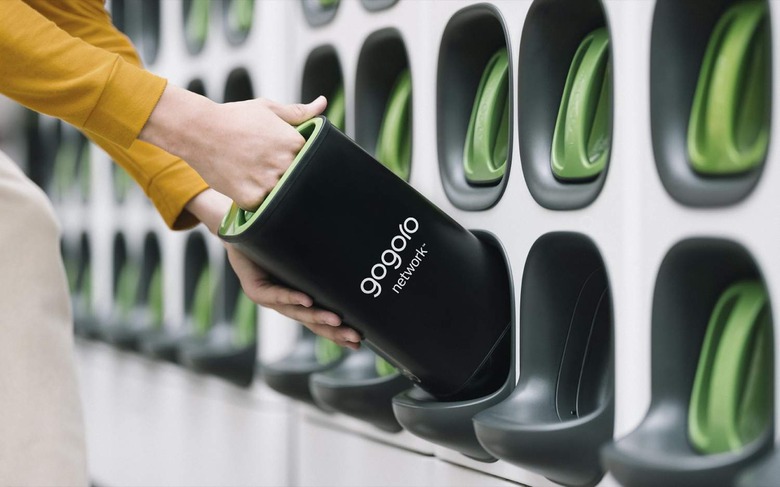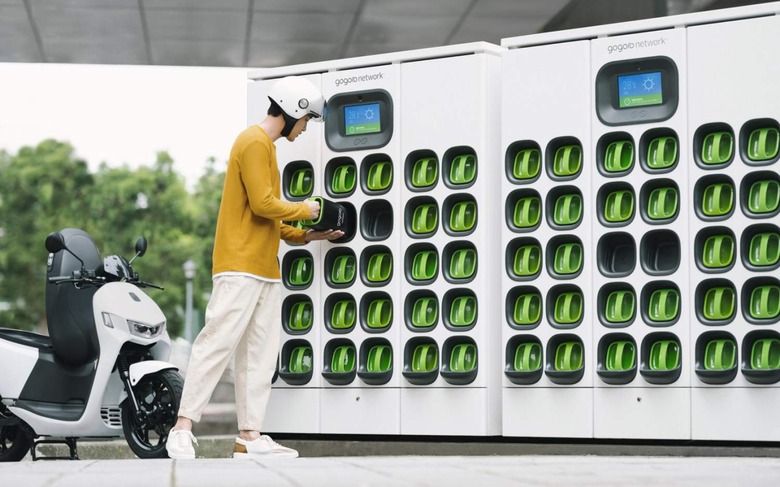Gogoro's fast-swap scooter battery system is taking on its toughest market yet
Gogoro is taking on arguably its most competitive territory to-date, bringing its interchangeable battery system to China as it plans a huge swapping network for the pull-out power packs. Gogoro will be partnering with Chinese scooter firms Yadea and DCJ, which will be developing a range of two-wheeled vehicles that get their power from the fast-switched batteries.
Those batteries are the central part of what the company calls the Gogoro Network. Rather than scooter-riders plugging in their vehicles to recharge, they can instead pull out the two battery blocks from the rear. They slot into a charging station, and two new, fully-charged versions are released to get the rider back on the road.

Gogoro's work has been on ramping up accessibility of those swap locations, which it calls GoStations. Currently, there are 2,100 supporting on average 270,000 daily battery swaps, the company says, in locations including Taiwan. Earlier this year, Gogoro inked a partnership with Hero MotoCorp to launch the network in India.
For the China expansion, Gogoro isn't aiming small. DCJ has been the number one two-wheeled gas scooter manufacturer in China for 18 years, with over 100 models on offer and over 15,000 retail outlets in the country. Yadeo, meanwhile, is the number one electric two-wheel maker globally, and sold almost 11m such vehicles in 2020.
The partnership comes as China is poised to retire a huge number of old, more polluting bikes. New regulations will mean some 270 million are pulled from service by 2025, for both quality and safety requirements. In some Chinese cities, Gogoro points out, new rules around electric infrastructure is also set to promote the switch to EV.

There'll be a new operating company in China that deploys and manages the Gogoro battery swapping infrastructure. That's expected to launch this year, albeit only in one city; it'll expand in 2022 to other locations.
At this point, it's unclear what the new two-wheeler designs will look like, and what features they may include. Gogoro initially began by developing its own scooter, as a proof of concept for the battery-swapping technology. That GoScooter has since expanded to a broad range of models at different price points, though Gogoro has also partnered with other manufacturers – including Yamaha, Aeon Motors, eMoving, PGO, and eReady – for third-party models that support the batteries.
Gogoro's stance has always been that it's not so much a scooter company or even a transportation company, but in fact an energy company. Launched a decade ago, in addition to the Gogoro Network, Gogoro has also developed a new e-bike motor and battery system. That's currently used in its own, fairly expensive models, but Gogoro has said it's aiming to expand availability by partnering with other bike-makers with the tech.
